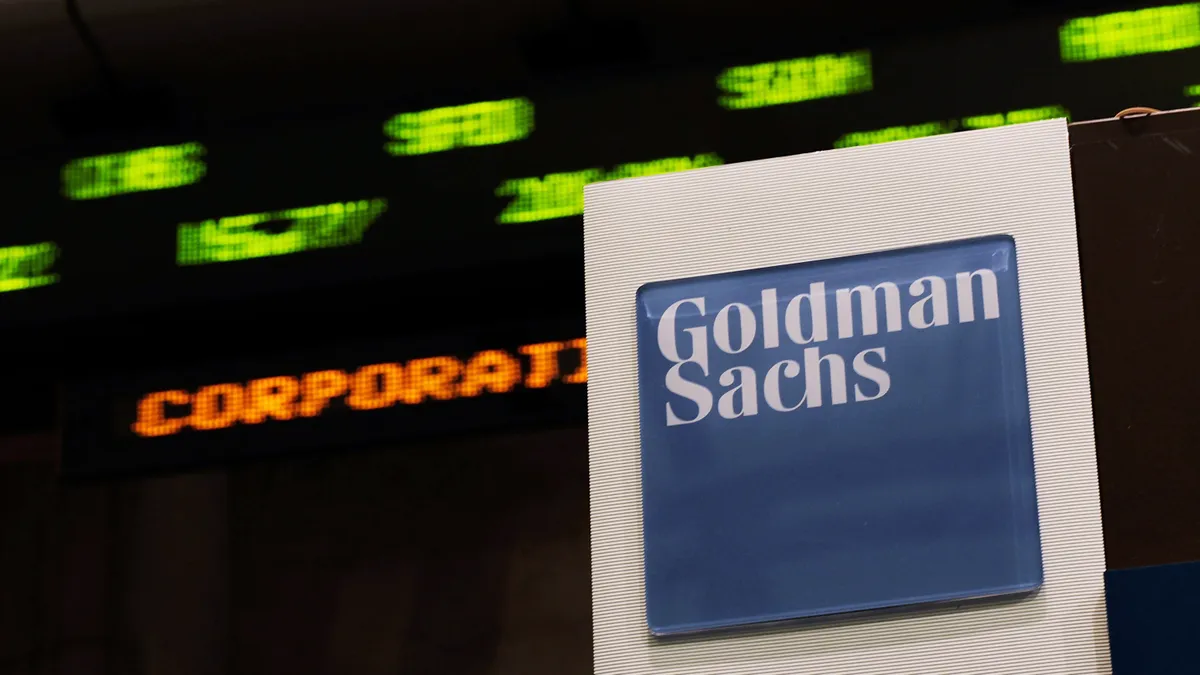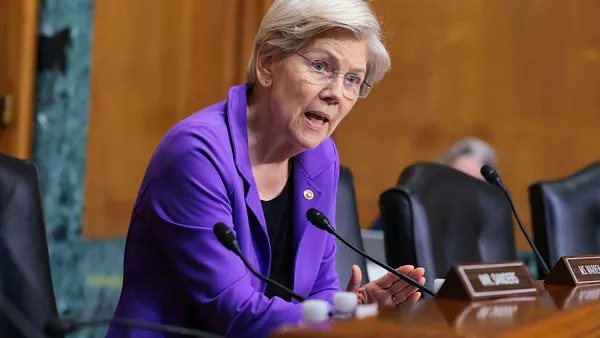Dive Brief:
- The Securities and Exchange Commission (SEC) is investigating Goldman Sachs’ asset-management division to see whether investments in two mutual funds are meeting the environmental, social and governance (ESG) metrics their marketing materials tout, Bloomberg reported Friday, citing an anonymous source.
- The agency has turned more attention in recent weeks toward accurate representation of ESG investment. It fined a BNY Mellon subsidiary $1.5 million last month for misstating in prospectuses that its mutual funds received ESG quality reviews when that wasn’t always the case. The regulator later voted to issue two proposals: one to require funds that label themselves “ESG,” “sustainable” or “low-carbon,” for example, to invest at least 80% of their holdings in certain industries or investment types, and another requiring more detailed disclosures.
- The SEC and Goldman declined to comment on the matter to The Wall Street Journal, Bloomberg and the Financial Times.
Dive Insight:
SEC rules defining ESG investing and its requirements are not final, so the regulator, for now, is looking to see how ESG fund investment in practice lines up with companies’ promises to shareholders.
Goldman manages at least four funds that have clean energy or ESG in their names, The Wall Street Journal reported. The bank changed the name of its Blue Chip Fund in June 2020 to the U.S. Equity ESG Fund, according to the publication. Holdings in that fund undergo an ESG analysis but may feature investments in some companies without such a screening, the bank said, according to the Journal.
In regulatory documents, Goldman said its ESG fund aims to keep 80% of its net assets in stocks issued by companies that meet the fund manager’s criteria. That excludes companies that earn most of their revenue from selling alcohol, tobacco, weapons, coal, oil and gas. But it can also invest up to 20% of its net assets in stocks that deviate from its ESG standards, The Wall Street Journal reported.
ESG investments have nearly tripled over the past two years, according to Morningstar. Funds that claim to focus on sustainability or ESG factors contained $2.78 trillion in assets in 2022’s first quarter, compared with less than $1 trillion around the same point in 2020.
Given how quickly ESG investment has grown, regulators are looking to exert some measure of control over the booming space even as rules are still taking shape.
“Regulators aren’t necessarily looking at a grace period,” Sonali Siriwardena, global head of ESG at the law firm Simmons & Simmons, told Bloomberg, calling the recent surge in ESG enforcement action a “reckoning.”
Officials from the German financial regulator BaFin, public prosecutors and roughly 50 police raided the Frankfurt offices of Deutsche Bank and its asset-management subsidiary DWS last month over allegations it had exaggerated its ESG credentials.
The SEC and the Justice Department launched their own investigation into DWS greenwashing claims in August.
“I believe these are the first ripples of a wave of regulatory interventions that we are likely to see in the coming months,” Siriwardena said.
Kristin Snyder, a partner at Debevoise & Plimpton who earlier served as deputy director in the SEC’s examinations division, told the Financial Times she thinks it is “highly likely” that the finance space will see “additional cases before Sept. 30” similar to the BNY Mellon penalty.
It is possible, too, though, that the Goldman probe could end without a formal enforcement action.
“What happened at DWS is going to push asset managers to be much more careful about the things they’re saying,” Sasja Beslik, chief investment officer at NextGen ESG, told Bloomberg.
The raid and allegations prompted DWS’s chief executive to step down, effective June 10. But before he left the company, CEO Asoka Wöhrmann — at the bank’s annual general meeting — called the ESG concept of sustainability “too important an issue to make it OK for us that some individuals exploit it for personal gain.”
“The continuing inflows into ESG products not only highlight the trust of our clients but also the quality of our ESG offering,” he said, according to Bloomberg.














